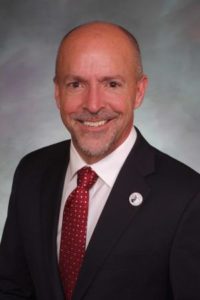
CO-04 (Special Election)
See Full Big Line
(R) Greg Lopez
(R) Trisha Calvarese
90%
10%

President (To Win Colorado)
See Full Big Line
(D) Joe Biden*
(R) Donald Trump
80%
20%↓

CO-01 (Denver)
See Full Big Line
(D) Diana DeGette*
90%

CO-02 (Boulder-ish)
See Full Big Line
(D) Joe Neguse*
90%

CO-03 (West & Southern CO)
See Full Big Line
(D) Adam Frisch
(R) Jeff Hurd
(R) Ron Hanks
40%
30%
20%

CO-04 (Northeast-ish Colorado)
See Full Big Line
(R) Lauren Boebert
(R) Deborah Flora
(R) J. Sonnenberg
30%↑
15%↑
10%↓

CO-05 (Colorado Springs)
See Full Big Line
(R) Dave Williams
(R) Jeff Crank
50%↓
50%↑

CO-06 (Aurora)
See Full Big Line
(D) Jason Crow*
90%

CO-07 (Jefferson County)
See Full Big Line
(D) Brittany Pettersen
85%↑

CO-08 (Northern Colo.)
See Full Big Line
(D) Yadira Caraveo
(R) Gabe Evans
(R) Janak Joshi
60%↑
35%↓
30%↑

State Senate Majority
See Full Big Line
DEMOCRATS
REPUBLICANS
80%
20%

State House Majority
See Full Big Line
DEMOCRATS
REPUBLICANS
95%
5%
 June 08, 2020 11:56 AM UTC
June 08, 2020 11:56 AM UTC 11 Comments
11 Comments
"If you were offended by my words I apologize. They came from a place of ignorance." Seriously?! You've walked this planet for a few decades, and you just now learned this? You are either a big fucking liar, or a big fucking idiot. Apology not accepted.
He can't be both???
Good point! Let's not posit mutual exclusivity where none exists.
I agree. But I refuse to say and/or!! Is this one of those "the disjunctive shall be read to mean the conjunctive and vice-versa?" "Lying idiot" was probably a better choice, but I was on my first cup
Good man!
“. . . it’s so much easier just to say what I’m thinking when I’m wearing my hood and can relax among all my beige peeps.”
Or his red MAGA cap.
Well, he does have an excuse.
"The racial makeup of [Loveland] was 92.85% White, 0.37% Black, 0.69% Native American, 0.83% Asian, 0.03% Pacific Islander, 3.21% from other races, and 2.02% from two or more races. Hispanic or Latino of any race were 8.57% of the population."
Yes- as covered above "…either a big fucking liar, or a big fucking idiot…"
I admit I am amused that “Colored People” is the language of Satan while “People of color” , which means exactly the same thing, rolls gently from the tongue of Jesus.
pass me the fracking fluid, boys, pc lectures always make me ill.
I had a Grandma who astonished the 1970-something me by referring to some citizens of her community as “the colored.” I asked my Dad, who said it was a change, and probably an improvement on her description of people in the same neighborhood twenty years before as “the darkies.”
He then told me she was one who helped with the genealogy and application papers for one woman of that neighborhood to be inducted into the local chapter of the Daughters of the American Revolution. And voted for one of men of the neighborhood who was part of the train crew that worked with her husband to become a deacon at her church. And went “visiting” in the neighborhood on many Sunday afternoons after services and a dinner on the grounds of the church. My Dad’s lesson ended with something like… “the people who knew her liked when she visited them or had them come to visit her, and didn’t seem to mind what she called the whole community.”